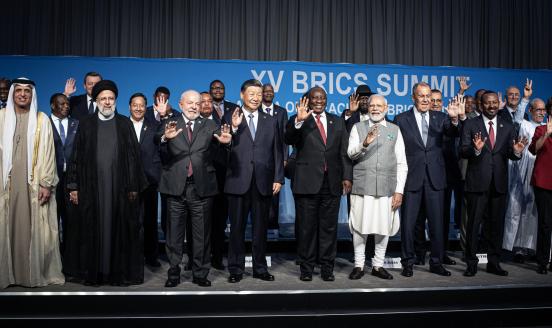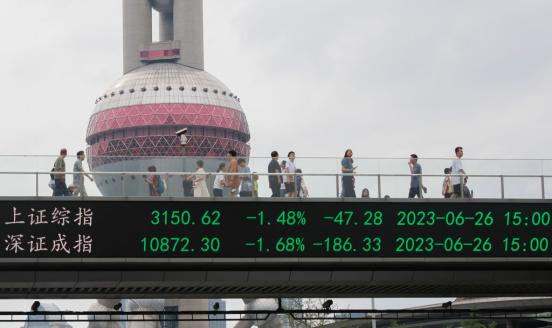What are China’s global economic intentions?
At this January's Davos meeting, Chinese President Xi Jinping announced to a surprised audience that China would be the world’s new champion of global
This comment was originally published in the Winter 2017 edition of International Economy.

The speech of President Xi Jinping in Davos should not surprise anybody. For the last thirty years, the Chinese economy has benefited enormously from free trade and financial globalisation. During this period, it moved up from the group of low-income countries to the upper middle-income group and eradicated most of its extreme poverty. According to the IMF World Economic Outlook database, when Chinese market reforms started in 1980, country’s GDP per capita in purchasing power parity terms was equal to only 2.5 percent of that of the United States. In 2015, it reached the level of 25.6 percent of U.S. GDP per capita in PPP terms. In 2014, China became the largest world economy as estimated in PPP terms.
As an upper-middle-income country, China is even more dependent on the uninterrupted functioning of global markets than it was thirty, twenty, or even ten years ago. A substantial part of the Chinese manufacturing industry has become part of global value chains. Moving up within these chains, Chinese enterprises are interested in increasing imports of new technologies. Foreign direct investment plays an important role in the modernisation of the Chinese economy. There is also the expansion of Chinese outward investment going beyond traditional resource related projects in developing countries. The largest Chinese corporations need access to the world financial markets to continue their expansion.
In the coming decade, China will have to change its growth model, largely due to a forthcoming demographic crisis (a legacy of the one-child policy) and increasing environmental and infrastructure constraints. Again, meeting this challenge will require deepening its access to the global and regional markets for goods and services, capital, and, at some point, labour. China will need even more modern technologies, highly trained specialists, and deeper scientific cooperation with leading research centres of the world.
For all these reasons, it is in the vital interest of China to defend global economic openness and liberal trade regimes against danger from a protectionist backlash. However, in order to become a credible and respected champion of globalisation, China must do a lot of its own homework. This includes continuation of its market-oriented economic and institutional reforms, increasing domestic economic, civic, and political freedoms, and building a modern legal system based on the rule of law.
China should restructure and open up its financial sector and liberalise capital account transactions, as well as open other service sectors, remove remaining barriers to foreign capital, and fully enforce intellectual property rights. Changing its monetary policy regime towards inflation targeting and a freely floating exchange rate would be the best counter-argument against continuous accusations of currency manipulation. Finally, China should contribute more to global and regional security, resolve territorial disputes with its neighbours, and refrain from actions which antagonise them.



